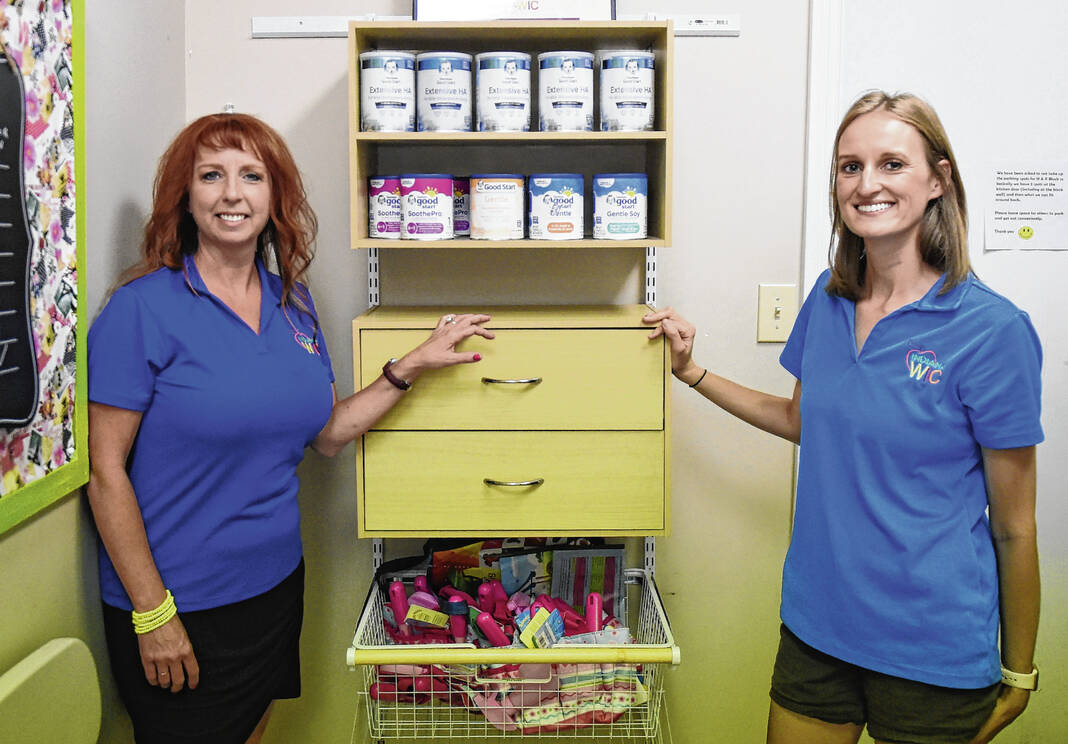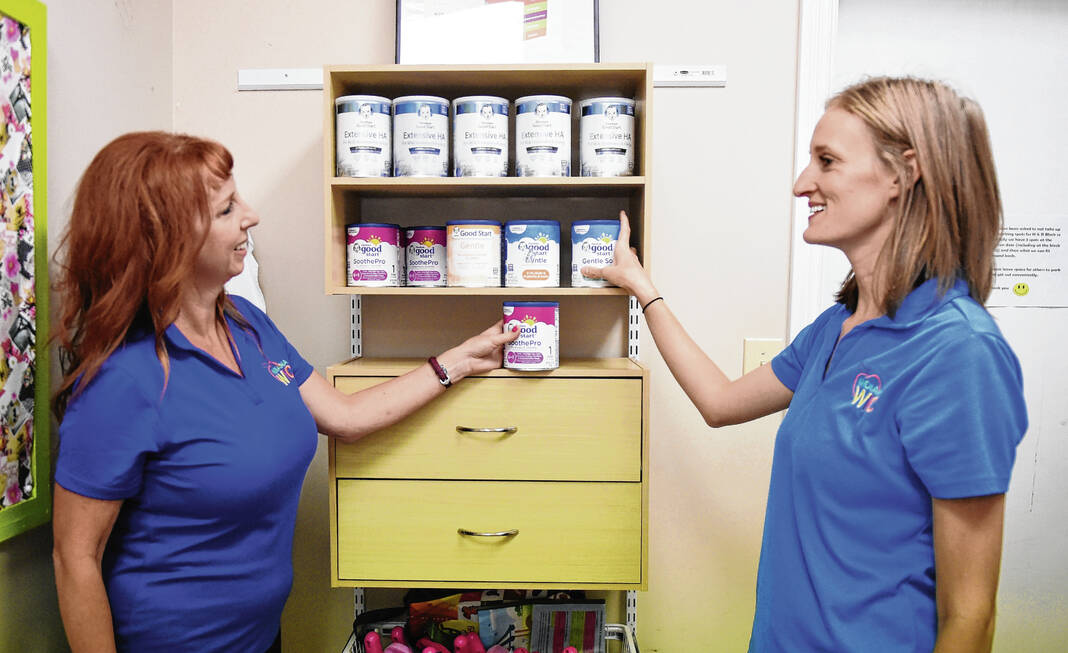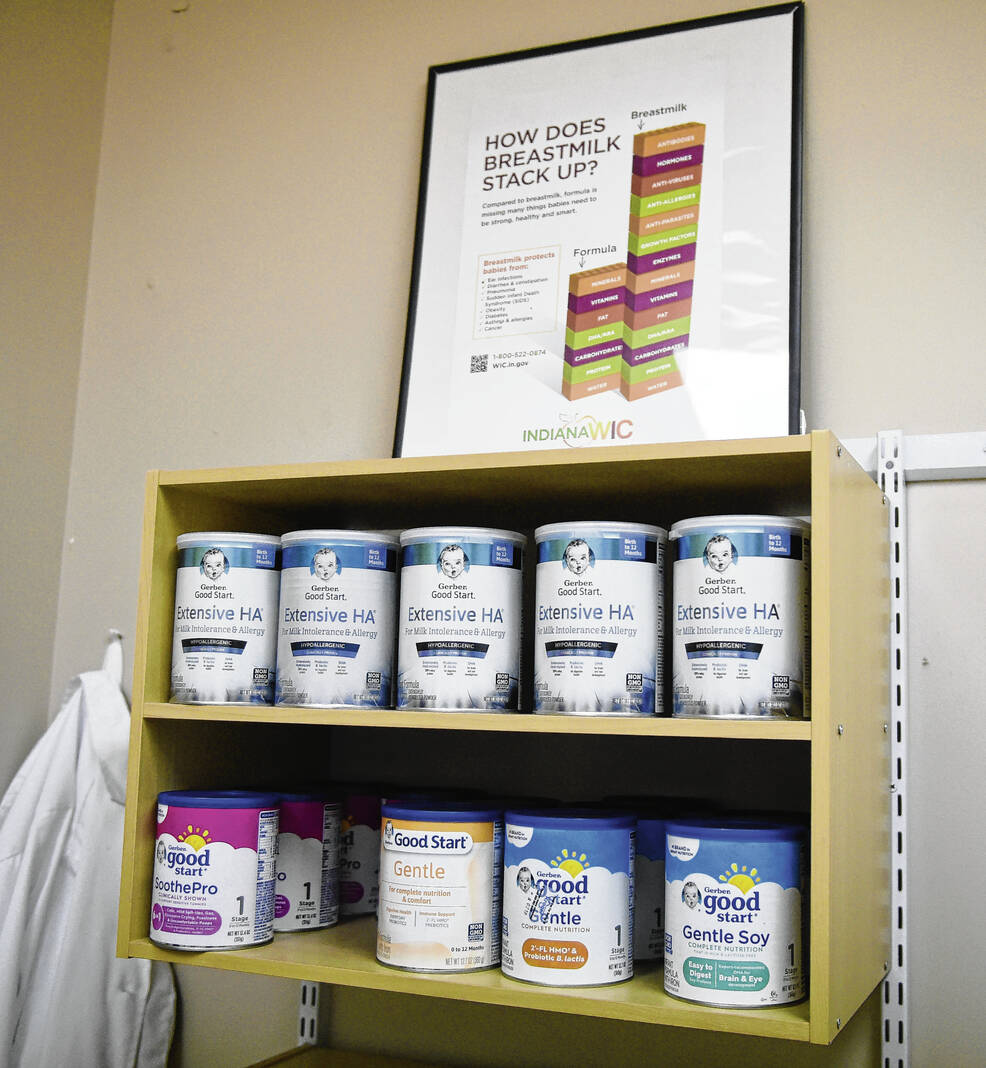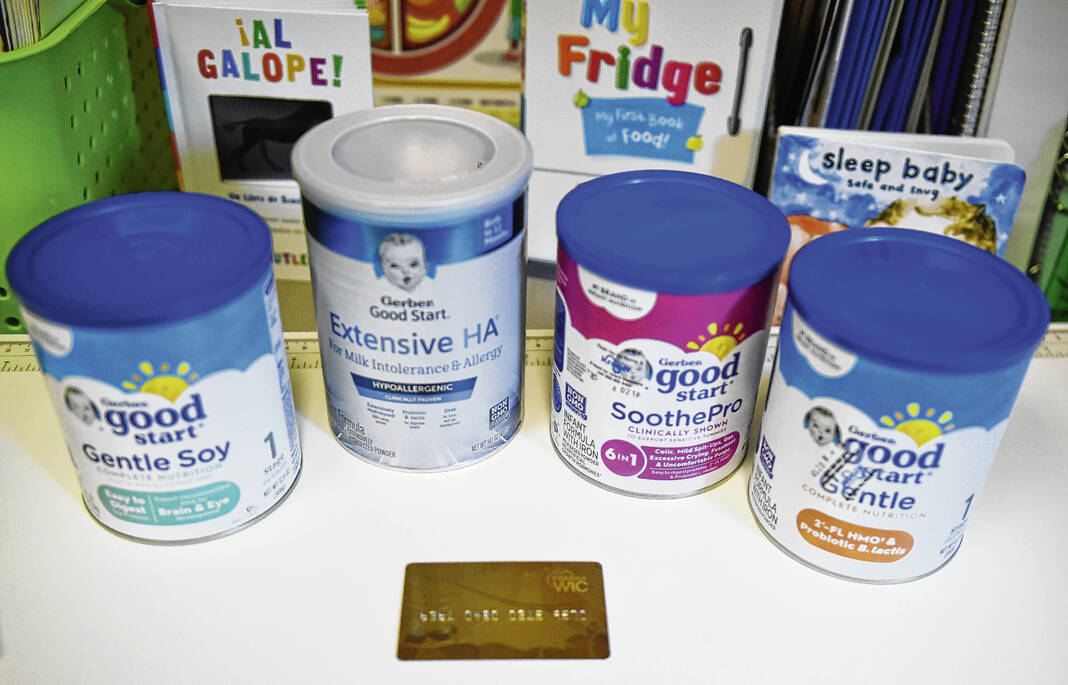The despair and panic is clear in the voices coming through the other end of the phone line.
Mothers, out of options and unsure where to turn, have been reaching out to Johnson County Women, Infants and Children for assistance amid the crushing ongoing formula shortage. Through its statewide resources and connections with area businesses, WIC has been connecting desperate parents with the formula they need to keep their babies healthy.
Even for families that are not WIC clients, the agency has the ability to help.
“We’ve had parents in tears, so we just try to reassure them that we will find a way to make sure their babies are fed,” said Tracy Smith, coordinator for Johnson County WIC as well as a registered dietitian and lactation consultant. “Whether it’s a substitution, working with other community partners, identifying other sources, we haven’t had a scenario where we couldn’t help a mom find the formula they needed.”
Since it intensified in the first part of 2022, the infant formula shortage has caused anxiety and stress for parents across the country. The nationwide shortage, caused by supply chain issues and a recall by Abbott Nutrition in February, has sent families scrambling to find the right formula for their children.
For parents whose children have food allergies or special nutritional requirements, the shortage borders on crisis.
“It affects all walks of life. Everyone is in a panic, when it comes to feeding your baby, because it’s their sole source of nutrition,” Smith said.
Parents across the board have struggled with finding formula for their children. But where some families can afford to order formula online or canvas stores trying to find in-stock items, many of the families who qualify for WIC don’t have that ability, said Angela Larkin, breastfeeding coordinator, dietitian and lactation consultant for Johnson County WIC.
“Even driving from one store to another to look, especially with gas prices the way they are, it’s a really barrier for moms to have to go to one store,” she said. “There’s one obstacle after another for our moms.”
In late May, the Indiana Department of Health created a resource for parents answering questions about the shortage and providing guidance in finding help. The resource explained the supply chain issues facing the nation, stressed the dangers of parents making their own infant formula and warned against trying to stretch out your formula supply by adding more water.
“While many of us turn to family, friends and the internet when we have questions, in this case, it is very important that parents and caregivers use reliable information when making decisions about instant feeding,” said Dr. Kristina Box, state health commissioner, said in the release. “We want to answer some questions and give important information and resources to help keep your baby safe and healthy during this stressful time.”
At the same time, Indiana WIC implemented flexibilities into the formula that parents within the program could buy. WIC is a program for women, infants, and children that provides federal grants to states for supplemental foods, health care referrals, and nutrition education.
The aim is at low-income pregnant, breastfeeding, and non-breastfeeding postpartum women, as well as to infants and children up to age 5 who are found to be at nutritional risk.
Benefits that WIC clients received are loaded on a card, and then families can use it to purchase qualified items at participating stores. In Johnson County, those stores are Kroger, Meijer and Walmart.
In the face of the formula shortage, Indiana WIC made changes to give families had more options in terms of the formula can size they could buy with WIC benefits, made allowances for store brand formula for babies with hypoallergenic needs and adding additional specialty formulas.
“If they are finding that the formula you need is not on the shelf, then they call us,” Smith said. “The partner stores communicate with the state of where you can find certain formulas.”
Johnson County WIC can also make immediate changes to clients’ qualified specialty formula types if needed. So if a baby has dietary restrictions and needs a certain type and brand of formula, WIC can make allowances for the family to include comparable store brands.
“Those infants can’t always tolerate or absorb regular formula, that’s why they’re on the specialized formula. Those are the ones we can substitute out for store brand,” Smith said.
In addition, WIC has developed a dropped shipment authorization, where the local agency can have formula dropped off at their clinic directly, and parents can pick it up themselves.
Last resorts include contacting community partners, such as food pantries and diaper programs, for an extra formula they can spare.
“It’s nice to be able to reassure moms and lighten that burden,” Larkin said. “Let us be that team of searchers.”
The main focus of the office has been on WIC clients and their families. But their assistance is available to everyone in the county who is struggling during the shortage; the agency wants to prevent parents from reaching the point where they believe their only option is to make their own version of formula.
“Even if those families don’t qualify for WIC, we’re going to be able to locate a source for them, where they can go to get formula without feeling like they have to make it on their own,” Smith said. “Kind of the reason WIC came around is that people were making their own formula and babies were malnourished, developing certain diseases and conditions because of it.”








